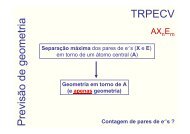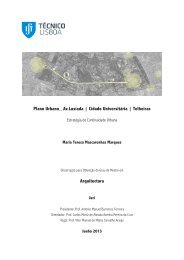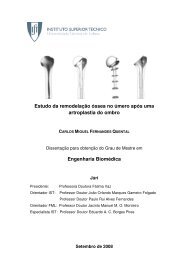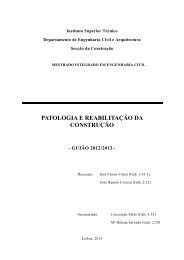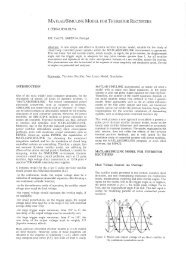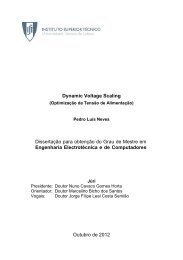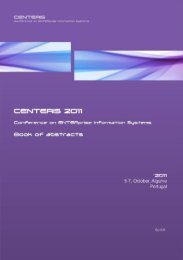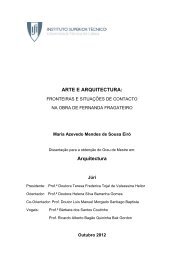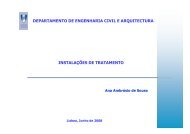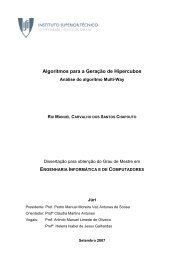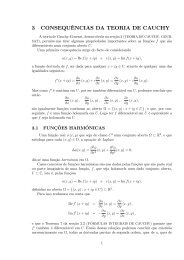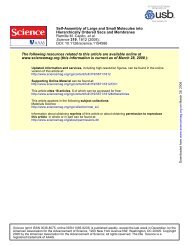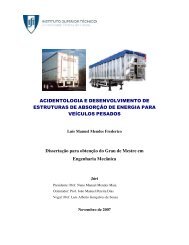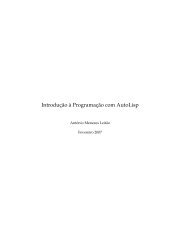dissertacao.pdf
dissertacao.pdf
dissertacao.pdf
You also want an ePaper? Increase the reach of your titles
YUMPU automatically turns print PDFs into web optimized ePapers that Google loves.
So if we use contrapositive of this theorem, we get a test to check whether a<br />
given number is composite:<br />
Theorem 8. An odd positive integer N is composite if there exists a positive<br />
integer a such that (a, N) = 1 and<br />
a N−1 ≇ 1 (mod N) (27)<br />
There are composite numbers N that satisfy a N−1 ≡ 1 (mod N) for some a<br />
in the conditions of the theorem. In this case, N is called a base-a pseudoprime.<br />
We call it pseudoprime because, if we run Fermat’s Primality Test (FPT) for<br />
N with such a base a, the test will not identify N as composite. One way to<br />
round this problem is to simply run the test again with a different a : base-a<br />
pseudoprime form quite different sets for different values of a, so we have the<br />
hope of identifying N as a composite by simply trying out different values of<br />
a. There is, however, one problem: there are composite numbers N which are<br />
base-a pseudoprime for all a satisfying the conditions of the theorem. These<br />
numbers are called Carmichael Numbers.<br />
Definition 15. A composite number N is called a Carmichael Number if it<br />
satisfies:<br />
for every positive integer a such that (a, N) = 1.<br />
a N−1 ∼ = 1 (mod N) (28)<br />
So a Carmichael number will never be identified as composite by FPT. Al-<br />
though they are highly infrequent, Carmichael numbers are an infinite set so<br />
they represent the biggest flaw of FPT. For this reason, FTP alone is not a<br />
deterministic test.<br />
22



